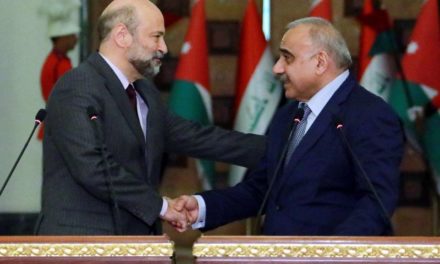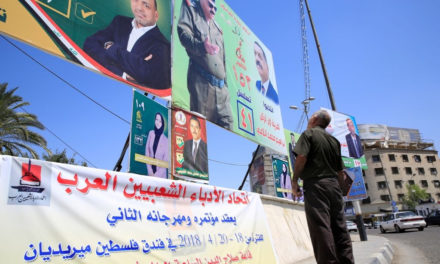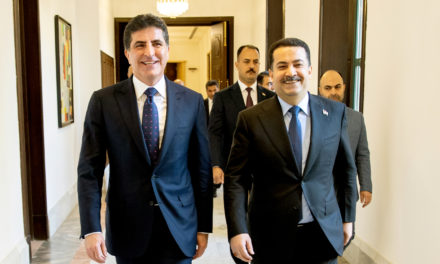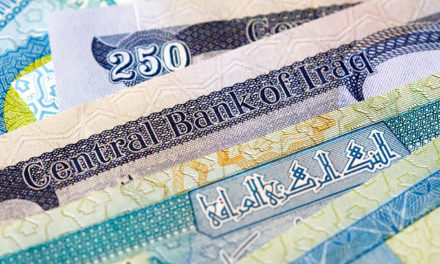Fall in Iraq brought along with it the death of more than 300 protesters and security personnel in what has become the country’s largest wave of protests since 2003. The protests started off as modest and focused on improving services and providing job opportunities. But with the rise of violence, and the unexpected, government crackdown through the use of live ammunition against civilians, the breadth of protesters’ demands only expanded, and so did the use of violence against them creating a situation which has resulted in a political impasse. Many recommendations were put forward to contain the widespread anger, but the government – paralyzed by significant party interests and foreign agendas – has not been able to meet protesters’ demands. The protesters also seem to lack an organized leadership, despite their ability to unite under one goal: good governance and the rule of law. This piece attempts to look at Iraq within its regional context and to provide an overview of the past sixteen years to argue why the need for democratic reform is imminent.
Iraq in context
Years of conflicts and instability undermined the possibility of undertaking meaningful political change and democratic reform in post-2003 Iraq. The international community and Iraqi government’s focus on dealing with terrorism, and internal tensions relegated democratization efforts to the background. In the past fifteen years, al-Muhasasa maintained political stability at the elite level, but it could not generate tangible benefits for the average citizen. The fight against Da’ish kept al-Muhasasa alive and in shape. However, the pressure on the Iraqi government to end endemic corruption practices and deliver services combined with the disillusionment of Iraqis with the political establishment have been only increasing – especially following the victory against Da’ish.
Seen in the wider Middle Eastern context, Iraq had for some time featured a relatively satisfactory emergent democracy. The new wave of authoritarianism in the Middle East – exemplified by Al-Assad’s regime reconsolidation in Syria, Erdogan’s one-man-rule in Turkey, Mohammed bin Salman’s tightening grip over Saudi Arabia, and el-Sisi’s military rule in Egypt – has put the Iraqi case in an exceptional position. Despite its flaws and the multiple challenges it faces, democracy in Iraq was able to prevent a return of authoritarianism. This has been a remarkable feat given Iraq’s authoritarian legacy, the arguably authoritarian nature of the rule of Prime Minister Maliki and occasional calls for the return of a ‘strongman’. However, the government’s recent violent reaction to Iraqis’ legitimate demands indicates that democracy in the country is going through a critical conjecture and the wave of authoritarianism might engulf it eventually as well.
Nonetheless, it is still possible for Iraq to benefit from the opportunity provided by current protests and the lack of an active war against terrorism to carefully nurture the country’s young democracy from within through dedicated small steps forward. The fact that the Iraqi people refuse to give up on the civil and political liberties they gained following the fall of Saddam’s regime indicates that the belief in the values of reform and good governance in Iraq is still there. Indeed, Iraq is still much affected by regional dynamics, such as the rising tension between Iran and the US and the Turkish aggression in Syria, coupled with internal challenges, including – but not limited to – terrorism, para-state armed actors and extreme political fragmentation. These challenges limit the ability of the Iraqi government and institutions to dedicate their efforts toward democratic reform. They also contribute to less work on strengthening the rule of law or implementing constitutional guidelines to further consolidate democracy in the country. But no matter how pressing these difficulties are, they should not be used as an excuse to postpone or suppress the democratic process in the country.
From authoritarianism to a fragile democracy: the good and the bad
For more than three decades, Saddam ruled Iraq with an iron fist and formed a one-party dictatorship that infiltrated all aspects of life. In 2003, a transition to democracy was made possible through the American-led invasion and the removal of Saddam Hussein. Returning Shia and Kurdish politicians and the American civil administration in Iraq sought to put an effective end to the Ba’ath regime and impede any future possibilities of a one-man-rule.
The constitution adopted in 2005 defines Iraq as a federal state in which the system of governance is a parliamentary democracy. Further, it outlines several political and civil rights, calls for the division of power, and prohibits enacting laws that contradict the principles of democracy. But it also leaves gaps and uses vague language on issues related to administrating the country and its resources. However, regardless of its imperfections, the constitution guarantees the democratic nature of the Iraqi state.
In spite of the repeated accusations of fraud and corruption, which are sometimes politically motivated, Iraq has held relatively free and timely elections since the first parliamentary elections of 2005. Under no circumstance were elections postponed or threatened by influential political actors. After each election, Iraq witnessed an unprecedented peaceful transition of power – even Maliki submitted to public and political pressure in 2014 when he gave up the premiership to Abadi.
The political framework in place has also developed over the years to become symbolically inclusive. Through active participation in the decision-making process varies among groups and political parties, Iraq’s largest groups: Shia, Kurds, and Sunnis are proportionally represented. Other minorities and women are allocated quota seats within the parliament as per constitutional requirement, but their role and ability to influence politics still need to be strengthened.
Despite the relatively positive aspects mentioned above, the democratic qualities of the Iraqi political system face some critical challenges that have thus far prevented the establishment of full-fledged democracy in the country. Although the sectarian division of power ensured the representation of Iraq’s significant groups in the parliament and the cabinet, it has also contributed to chronic poor performance and corruption. For example, the supply of essential services falls well short of demand; this is partially due to the sectarian appropriation of public posts and resources. Ministers and general directors are mostly chosen based on their sectarian/ethnic identity and party affiliation. Consider, for example, the case of a single official who between 2003-2016 served as the minister of housing and reconstruction, interior, finance, and transport only because of his identity and party affiliation. Combined with the absence of a functioning accountability mechanism, the system in place does not place enough pressure on government officials to perform their duties either.
Moreover, political parties – some possessing armed wings and foreign patrons – have infiltrated state institutions and successfully subjugated ministries, independent commissions, judicial and public institutions to their interests and control. Recently, the newly appointed health minister submitted his resignation to Prime Minister Abd Al-Mahdi citing extortion and pressure by political parties and their affiliates to influence his work and hide the extreme corruption within the ministry as the main reasons behind his decision. Thus, in addition to being bloated with unnecessary employees, state sovereign bodies have become dysfunctional and hostage to elite politics. Ineffectiveness and subversion of Iraqi institutions have ultimately led to increased corruption and inefficient use of available resources. For example, the Ministry of Electricity spent more than $40 billion during the past sixteen years without any significant improvements in electricity provision. The inability of public institutions to become more effective directly threatens the democratic trajectory of the country. Recently, and due to their failure to address structural issues, Iraqi authorities have resorted to the use of force against protesters.
Thus far, Iraqis have failed to challenge the prevalent status-quo or hold their politicians accountable through the means available to them. Elections could not bring about noticeable change to political processes since many parties continue to use a populist rhetoric instead of competing over party programs and as the electoral system of Iraq continues to favor lager political parties. Neither could the (previous) annual protests or the religious appeals by Grand Ayatollah al-Sistani. These Protests were either politicized or limited to one province, and sermons are acknowledged but usually ignored. It remains to been seen whether this will change if the government’s corruption and poor delivery of services continues. Simultaneously, government bodies, such as the Integrity Commission or Adil Abd Al-Mahdi’s new Supreme Anti-Corruption Council have proved incapable of prosecuting high-profile politicians or tackling massive corruption cases.
So what happens now?
The threat of neglecting democratic reform however, is dangerous – especially when considering that 40% of the Iraqi population is younger than 15 and 20% are less than 24 years old. These youth have not experienced – or do not remember – living under the authoritarian regime of Saddam Hussein. Without proper education on Iraqi’s modern history and the suffering of its people combined with little economic opportunities, these young Iraqis might falsely associate democracy with current failures. A return to authoritarianism and dictatorship, however, would be a fatal attempt on Iraq’s unity and integrity. The current regional wave of growing authoritarianism can be prevented in Iraq if the overall quality of governance is improved. This includes addressing several issues such as services provision, climate change, high unemployment, among others. However, actions need to be taken immediately. Iraq’s youth bulge is currently putting more pressure on the political system, this will only continue and there are currently no safety valves to deal with this.
Nonetheless, democratic reform could be possibly hindered by factors including the appointment of yet another weak prime minister, regional political tensions and foreign meddling. In addition to the exclusive nature of the elite rule and their fragmentation. Thus, any initiatives to reform should be implemented gradually without directly threatening the interests of major players who could block reform entirely. Having said that, steps such as amending the electoral law and restructuring the Independent High Electoral Commission to improve are unavoidable. Reform on this sphere of the political process is necessary to encourage electoral procedures and restore popular trust in the system. This has to be followed by early elections as this government has lost its legitimacy in the eye of the people and it is highly unlikely that Adil Abd Al-Mahdi would be able to reinstate it. Unfortunately, while this scenario seems a logical way forward, it’s feasibility remains low as it is opposed by major political players.
However, if this scenario materializes in the near future, the new government should be tasked with facilitating a discussion on the constitution and brainstorming ways to review, activate, and amend some of its articles. The debate may include a discussion on the possibility of implementing articles 106 and 107 which require the establishment of a Public Commission to Audit and Appropriate Federal Revenues and a Federal Public Service Council. These two bodies could ensure that national resources are managed and distributed appropriately and that public servants are hired in positions that match their skillset and experience. This could, in turn, lead to improving the efficiency of state institutions and the quality of their services. Further, experienced international actors could provide their support to create robust plans to combat corruption and tighten financial control in expenditure, ministries and public institutions. Achieving this will not only reduce corruption but will also increase transparency, which ultimately increases the space for accountability. Besides these suggestions, any action taken now to bolster democracy in Iraq will be rewarding in the future.

Al-Hamzeh Al-Shadeedi
Al-Hamzeh Al-Shadeedi is a junior researcher at the Conflict Research Unit of the Clingendael Institute. He holds a BA in Business Administration from the American University of Iraq – Sulaimani and an MA in Modern Middle Eastern Studies from Leiden University.










